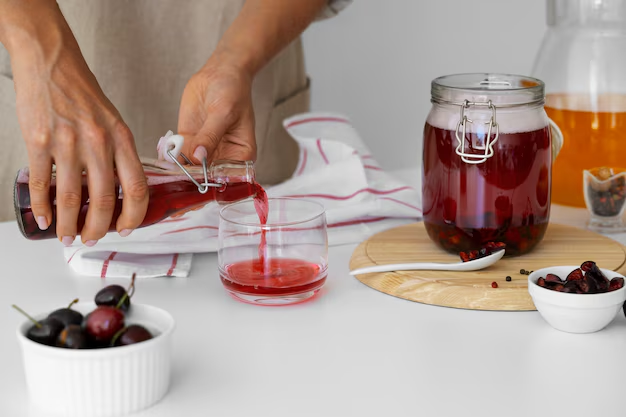Can You Reuse Refrigerator Pickle Brine? Everything You Need to Know
Pickle brine—an unexpectedly valuable resource that many people toss away once the pickles are gone. But is that leftover liquid just a culinary waif, or can it be repurposed effectively? Whether you're an adventurous cook or someone who's just curious about sustainability, understanding the potential uses of refrigerator pickle brine is both practical and intriguing.
Why Consider Reusing Pickle Brine?
Reusing pickle brine isn't just about getting more bang for your buck. It's about being resourceful and discovering unique flavors and uses for a liquid that's often overlooked. Pickle brine is rich in vinegar, salt, and sometimes spices, making it a versatile ingredient.
The Benefits of Reusing Pickle Brine
- Cost-Effective: Reusing brine saves money by extending the life of a single jar of pickles.
- Flavor Profile: Brine can enhance the flavor of foods, offering a zesty, tangy burst that can't be found elsewhere.
- Minimize Waste: Repurposing brine reduces food waste, a positive step towards sustainability.
- Health Factors: Some individuals opt for commercial sport drinks for electrolytes; pickle brine is a natural alternative.
Culinary Uses for Pickle Brine
From cooking to cleaning, pickle brine's potential stretches beyond obvious applications. The key lies in using it creatively to enhance various aspects of your culinary experience.
1. Re-pickling Vegetables
Refrigerator pickling with leftover brine is one straightforward way to repurpose it. Simply take fresh vegetables—such as cucumbers, carrots, or radishes—and immerse them in the leftover brine. Ensure they are fully submerged and leave them in the refrigerator for a few days. It's essential to note that re-pickling should be done with freshly prepared vegetables to avoid contamination issues.
2. Marinating Meat
Pickle brine makes an exceptional marinade for meats like chicken and pork. The acidity helps tenderize the meat, and the spices add significant flavor depth. To use, marinate your cuts of choice for a couple of hours before cooking in your preferred method.
3. Flavoring Recipes
Add a splash of pickle brine to sauces, dressings, and dips for an extra kick of flavor. It's particularly useful in recipes that call for vinegar, as it can enhance the complexity of the dish with minimal effort.
4. Boiling Potatoes or Eggs
Add pickle brine to the water when boiling potatoes or eggs. Doing so imparts a subtle zing to the final product, making these everyday foods far more exciting.
Non-Culinary Uses: Beyond the Kitchen
It's not just about food! There are several clever household applications for pickle brine that you may not have considered.
1. Cleaning Copper Cookware
The acidic nature of pickle brine makes it effective for removing tarnish from copper pots and pans. Rub it onto the copper, let it sit for a few minutes, and rinse it off with water before buffing to a shine.
2. Weed Killer
Use pickle brine as a weed killer. Its high acidity is effective at infiltrating and destroying unwanted plants in garden beds or walkways.
Considerations for Safety and Flavor
Before diving headfirst into reusing pickle brine, there are important safety and flavor considerations to take into account.
Safety First
- Check for Spoilage: Ensure the brine is still fresh; any signs of mold or unusual odor mean it should be discarded.
- Cross-Contamination: Avoid re-pickling after pickles containing raw meats or when brine has been used before without boiling.
Flavor Adjustments
Some brines are more potent than others, particularly those containing a lot of garlic or dill. Adjust to taste, especially when using for milder dishes. Before cooking, taste a small amount to gauge its strength and modify recipes accordingly.
Summary: Key Takeaways for Reusing Pickle Brine
🔹 Versatile Use: Pickle brine isn't just for pickling; it can marinate and season diverse dishes.
🔹 Eco-Friendly: Reuse minimizes waste, contributing to more sustainable kitchen practices.
🔹 Flavor Enhancer: Amplifies the taste in culinary recipes; a handy replacement for vinegar.
🔹 Safety Checks: Always ensure brine is fresh before repurposing.
🔹 Non-Culinary Perks: Effective in cleaning and gardening applications.
By injecting a little creativity into how you use what might have once been considered waste, you'll extract more value and enjoyment from your kitchen efforts. Whether you're looking to save money, get creative in the kitchen, or just avoid fancy concoctions full of additives, the forgotten hero—pickle brine—has much to offer. Explore its potential and discover a host of practical, delicious, and efficient applications that make use of every last drop.

